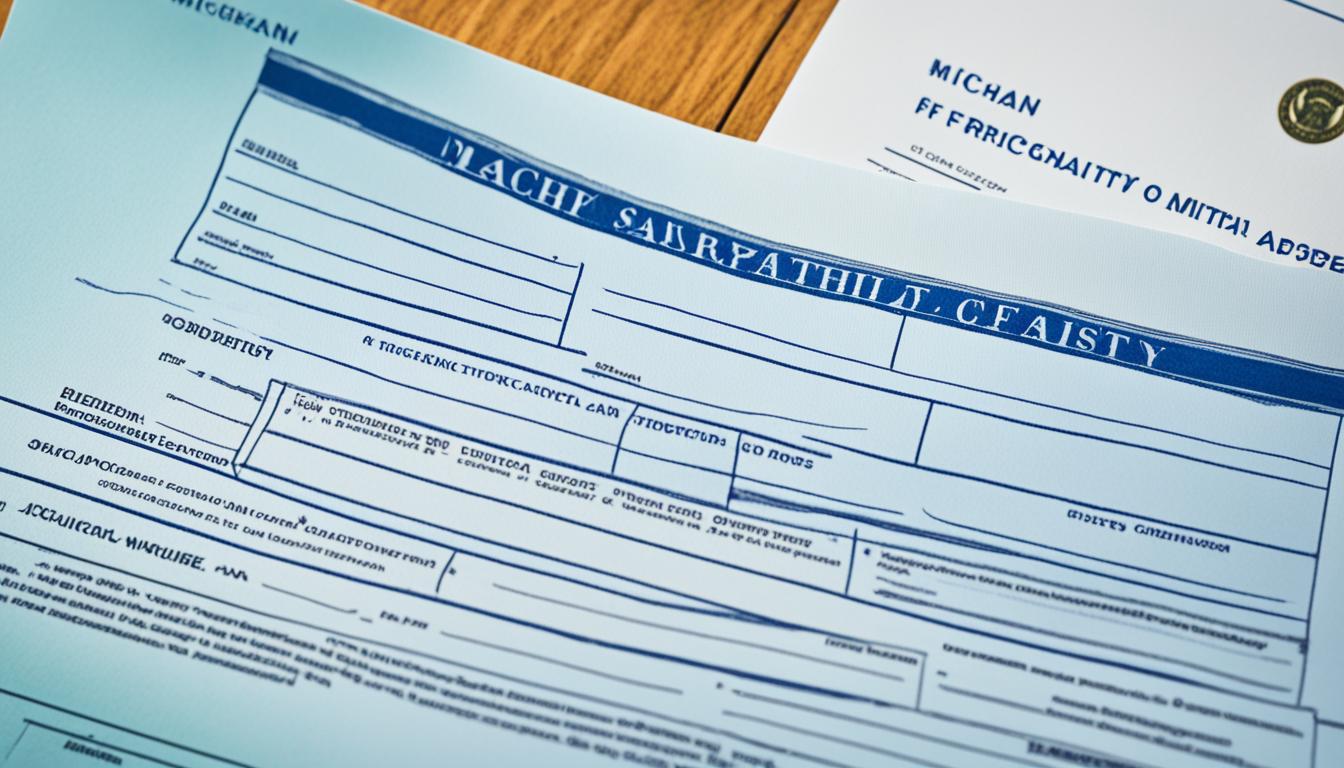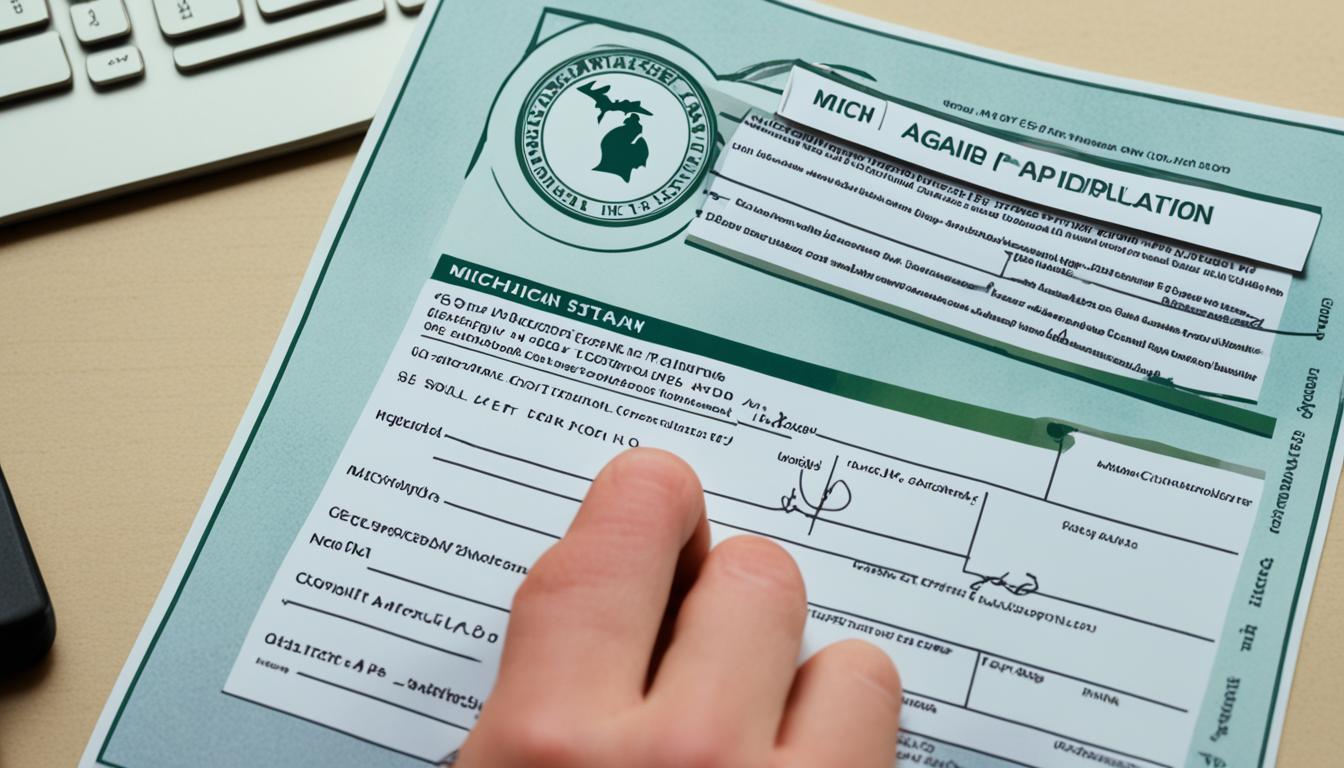For young residents in Michigan, obtaining a state ID marks an essential milestone towards independence and adulthood. The process, however, is governed by a specific set of requirements designed to ensure both legal compliance and security. Whether you are a minor yourself or a guardian helping to navigate this rite of passage, our complete checklist simplifies what you need to know to acquire a Michigan state ID for minors. Accurate understanding and preparation of the necessary documentation can streamline the application process, making it a hassle-free and educational experience.
Key Takeaways
- Understanding Michigan’s state ID requirements for minors is crucial for a smooth application process.
- Gathering all necessary documents beforehand can prevent delays in obtaining your Michigan minor state ID.
- Eligibility criteria emphasize proof of U.S. citizenship or legal status, and Michigan residency verification.
- Legal name changes need to be documented according to state guidelines for the ID to be processed.
- Being informed about potential delays, especially with the SAVE system, prepares applicants for realistic timelines.
- Knowledge of associated fees and accepted payment methods is important for budgeting and planning purposes.
Eligibility and Documentation for a Minor’s Michigan State ID
For minors in Michigan seeking to obtain a state ID, a thorough understanding of the eligibility requirements is essential. This involves knowing the age at which a minor can apply, what documents are needed as proof of identity, and potential hurdles that might arise during the verification process. Let’s delve into the specifics to ensure all minors equipped with the correct information can navigate this process smoothly.
Proof of U.S. Citizenship or Legal Status
To apply for a Michigan state ID, a minor must first establish proof of U.S. citizenship or legal status. This can be achieved through various documents, such as a birth certificate for citizens or appropriate immigration documents for non-citizens. It’s essential that the documents are original or certified copies to meet the Michigan Secretary of State’s standards.
Legal Presence Verification and SAVE System Delays
Upon presenting documentation of U.S. citizenship or legal status, a minor’s information is processed through the Systematic Alien Verification for Entitlements (SAVE) system. This system is designed to verify a person’s legal presence in the United States. While strives are made to expedite this process, applicants should be mindful of potential delays and allot additional time for verification before the state ID is issued.
Legal Name Change Documentation
If there has been a legal name change, the discrepancy between documents presented must be reconciled with official proof of the name change. This is typically done through court orders or marriage certificates, when applicable. It’s of importance that all documentation reflects the current, legal name of the minor applying for the state ID.
To illustrate the eligibility and the required documentation more clearly, the following table outlines what minors in Michigan need to present when applying for a state ID, based on different scenarios of citizenship and legal status, as well as instances of a legal name change.
| Citizenship Status | Required Documentation | Additional Considerations |
|---|---|---|
| U.S. Born Citizen | Birth Certificate (Original or certified copy) | Ensure the document has a raised seal or stamp |
| Non-Citizen with Legal Status | Immigration Documents (e.g., Green Card, Visa) | Prepare for potential SAVE system delays |
| Minor with Legal Name Change | Court Order or Marriage Certificate reflecting the name change | Confirm that all presented documents are updated |
Understanding the intricacies of obtaining a Michigan minor’s state ID empowers both minors and their guardians to prepare accordingly. By having these documents ready and anticipating the stipulated procedures, the path to obtaining a state ID can be seamless and free from undue delays.
What Does a Minor Need to Get a State ID in Michigan
When it’s time for a minor to apply for their state ID in Michigan, understanding the checklist of required documents is crucial. The assembly of these documents ensures that the application process moves forward without unnecessary setbacks. In this section, we delve into the specifics of the identification and paperwork that minors must secure to gain their official Michigan state ID.

Required Identification for Minors
To establish identity, minors must present official documentation. A certified birth certificate or a valid U.S. passport are commonly accepted forms of required identification. Additionally, if there has been a name change since birth, appropriate legal documentation, such as a court order, must be presented.
Documents Verifying Michigan Residency
Proof of Michigan residency is another critical step for minors applying for a state ID. Documents such as a current utility bill, rent or lease agreements, or even a school report card can serve as verification. It is vital to have at least two different documents confirming residency within the state of Michigan.
Presenting Social Security Information
Lastly, a Social Security number (SSN) is typically required. Providing a Social Security card is the most straightforward method of presenting this information. However, if the Social Security card is not available, Minors may need to bring alternative documents that include their SSN, or proof of ineligibility for a SSN, for their state ID application to be processed.
Navigating the Application Process for a Michigan State ID
When it comes time for obtaining a Michigan state ID, the application process involves several important steps. Knowing what to expect and preparing ahead can save you time and streamline the procedure. Below is a guide through the different phases, from initial online pre-application steps to in-person verification and payment of fees.
Pre-Application Steps Online Before Visiting SOS Office
Embarking on the journey to receive a Michigan state ID begins with crucial pre-application steps that can conveniently be completed online. It’s essential to gather all necessary documents, ensuring you meet the eligibility criteria, and fill out the required forms before scheduling a visit to the SOS office. These pre-application steps serve as the foundation of the application process, allowing for a more efficient experience at the SOS office.
In-Person Verification of Documents and Identity
After completing the online pre-application, the next phase is the in-person verification at the SOS office. This crucial step ensures the authenticity of the documents provided and confirms the applicant’s identity. Applicants will be required to present documents such as a birth certificate or passport and have their photo taken as part of the identity verification process.

Payment Methods and Associated Fees
Finally, applicants will finalize their Michigan state ID application by providing payment for the associated fees. The SOS office accepts various payment methods, including cash, credit/debit cards, checks, and money orders. It is crucial to know the cost in advance and come prepared with an acceptable form of payment to complete this step efficiently.
Understanding Different Types of Michigan State IDs for Minors
Michigan offers a range of state ID options to cater to the diverse needs of its younger residents. Developing an understanding of these different types of credentials is crucial for minors and those who care for them. This understanding aids in making practical and future-proofed selections aligned with personal or professional requirements. From simple identification purposes to enhanced credentials for travel, each ID serves a distinctive purpose.
For standard identification, a regular Michigan state ID is the foundational choice for minors. This credential is widely accepted for banking, medical records, and daily transactions where proof of identity is required. On the next tier, we have enhanced state IDs that serve dual functions. These enhanced versions not only confirm identity but also meet the federal requirements for domestic air travel, which will be particularly beneficial come the enforcement of the REAL ID Act. While regular and enhanced IDs cover the basics, minors with specific transportation roles—such as those employed in family businesses—might need to familiarize themselves with chauffeur and commercial licenses, which come with a distinctive set of criteria and training.
Beyond the functional use, the state of Michigan encourages minors to consider future aspirations when selecting their state IDs. For those showing early interest in careers that may require commercial driving capabilities, starting with the right form of identification could offer a streamlined path forward. It is also imperative to consider license endorsements, which can be appended to Michigan state IDs, signalling specific qualifications or permissions that a minor might hold or require in the future. Each type of ID or endorsement depicts a step towards autonomy and responsibility for minors in Michigan.





